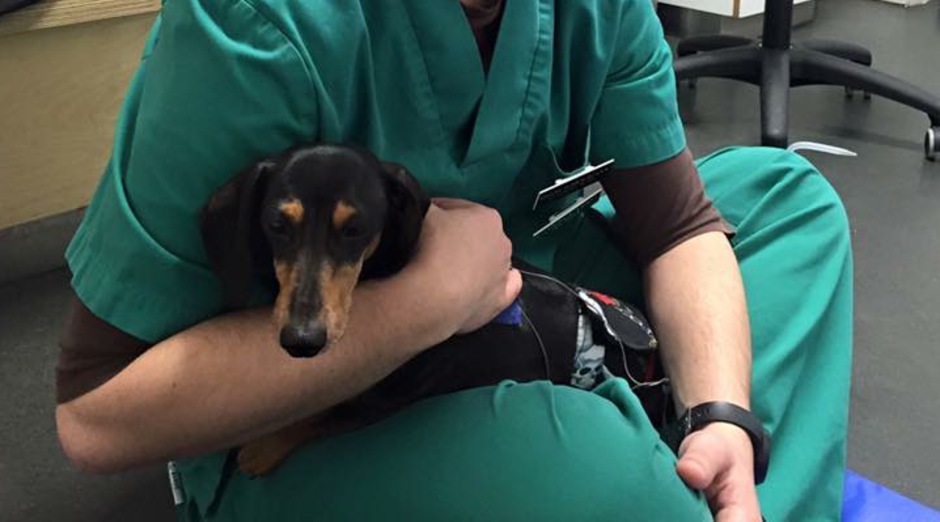
Veterinary qualifications and specialist status - what do they all mean?
We are grateful to Chloe Fisher (BVSc PGDipVCP DipECVN MRCVS, European Specialist in
_____________________________________________________________
Deciphering all the different terms and qualifications used by vets can be very challenging as you are likely to encounter a number of different phrases that vets use to determine the level of training they have undertaken. These phrases include ‘specialist’, ‘certificate holder’ and ‘specialist interest in’. These different titles can be very confusing and therefore, the aim of this information page is to allow you to help you choose the best person to meet your animal’s needs.
Overview of veterinary training:
To register to practice as a veterinarian in the UK, all vets must have undertaken 4-6 years of university undergraduate training, to obtain a veterinary degree. This undergraduate training covers all species and all disciplines, with most qualifications resulting in one of the following post-nominals: DVM, BVSc, BVetMed, BVM&S, BVMS and BVMSci. The post-nominals received depends on the university that your vet studied at but, are otherwise considered equivalent to one another.
Obtaining a veterinary undergraduate degree allows vets to apply to register for the governing body of vets in the country that they are practicing in. In the UK, this governing body is the RCVS and all vets practicing veterinary medicine in the UK must be on the RCVS register (MRCVS or FRCVS).
Following this initial necessary registration, all UK practicing vets must also complete a minimum of 35 hours of extra training every year, to ensure their skillset is up to date. This yearly training requirement is called ‘Continued Professional Development’ or CPD. Vets can choose to perform CPD on any topic they choose, with the training ranging from reading of articles to attending practical courses and lectures.
Many vets go on to develop an interest in one or two more specific areas of veterinary medicine or surgery as they progress through their career. These vets will often perform most of their CPD in these areas and may refer to an interest or ‘specialist interest’ in this area. No further examinations or qualifications are required for vets to declare an interest in a particular area and these vets are not considered as specialists in these areas.
Further post-graduate qualifications can then be obtained by vets wanting to further their knowledge in one or more specific areas. These qualifications include:
- Certificate holder
- Certificates are undertaken by vets with an interest in a particular area and often are largely comprised of a combination of distance learning and case reviews.
- Vet’s must meet certain requirements at the end of their certificate course to pass the certificate and display this extra qualification.
- In general, vets that have obtained a certificate qualification in a particular area will use the post-nominals ‘Cert’ (e.g. post-graduate = PGCert, CertAVP = advanced practitioner, general practitioner = GPCert) followed by letters indicating the specific discipline (e.g. small animal medicine = SAM, veterinary cardiology = VC).
- These certificates do not allow the use of the term ‘specialist’ (see below).
- Post-graduate diploma (PGDip)
- Master’s degree (MSc)
- Doctorate (PhD)
Specialist status:
Specialist veterinary status training is likened to consultancy training in human medicine and is considered the highest level of discipline-specific veterinary expertise in the UK. To become a veterinary specialist, your vet has to undergo a minimum of 3-4 years of additional training (akin to a registrar in human medicine), under the supervision of veterinary specialists. This training is often comprised of:
- Internships
- Rotating internships (1 year) are internships in which the vet rotates around a number of disciplines to widen their knowledge about referral veterinary services. Rotating internships are often the first step in specialist training.
- Discipline-specific internships (1 year) are internships in which the vet works within a veterinary department of their specific area of interest (e.g. Neurology, Surgery, Internal medicine).
- Residency training
- A residency is a 3-4-year long training program in which the vet works within the subject area they wish to specialise in, under the supervision of experienced specialists.
- As well as working in the subject area, during their training residents will also be required to meet certain ‘credentialing requirements’. These include performing and publishing clinical research, meeting caseload requirements and attending conferences.
- To become a specialist, your vet will sit board examinations at the end of their residency training. Your vet is required to pass these examinations to use the specialist status and be considered a diplomat in that area.
Board examinations may be European or American, thus allowing your specialist vet to achieve a European diploma, American diploma, or both. Once passed, vets will then use the post-nominals ‘Dip’ followed by their board area of expertise (e.g. European neurology = DipECVN).
Once vets have achieved specialist status, they are still required to meet their annual requirement of CPD, as set by the RCVS, in addition to on-going training requirements as set out by their discipline-specific governing body.
In the UK, vets that have achieved the European or American diploma qualifications can then apply to be added to the list of RCVS specialists, to also document RCVS specialist status alongside their European or American specialist status. To achieve this, vets must give evidence of their qualifications to the RCVS and once registered, they can be found on the RCVS website specialists page.

